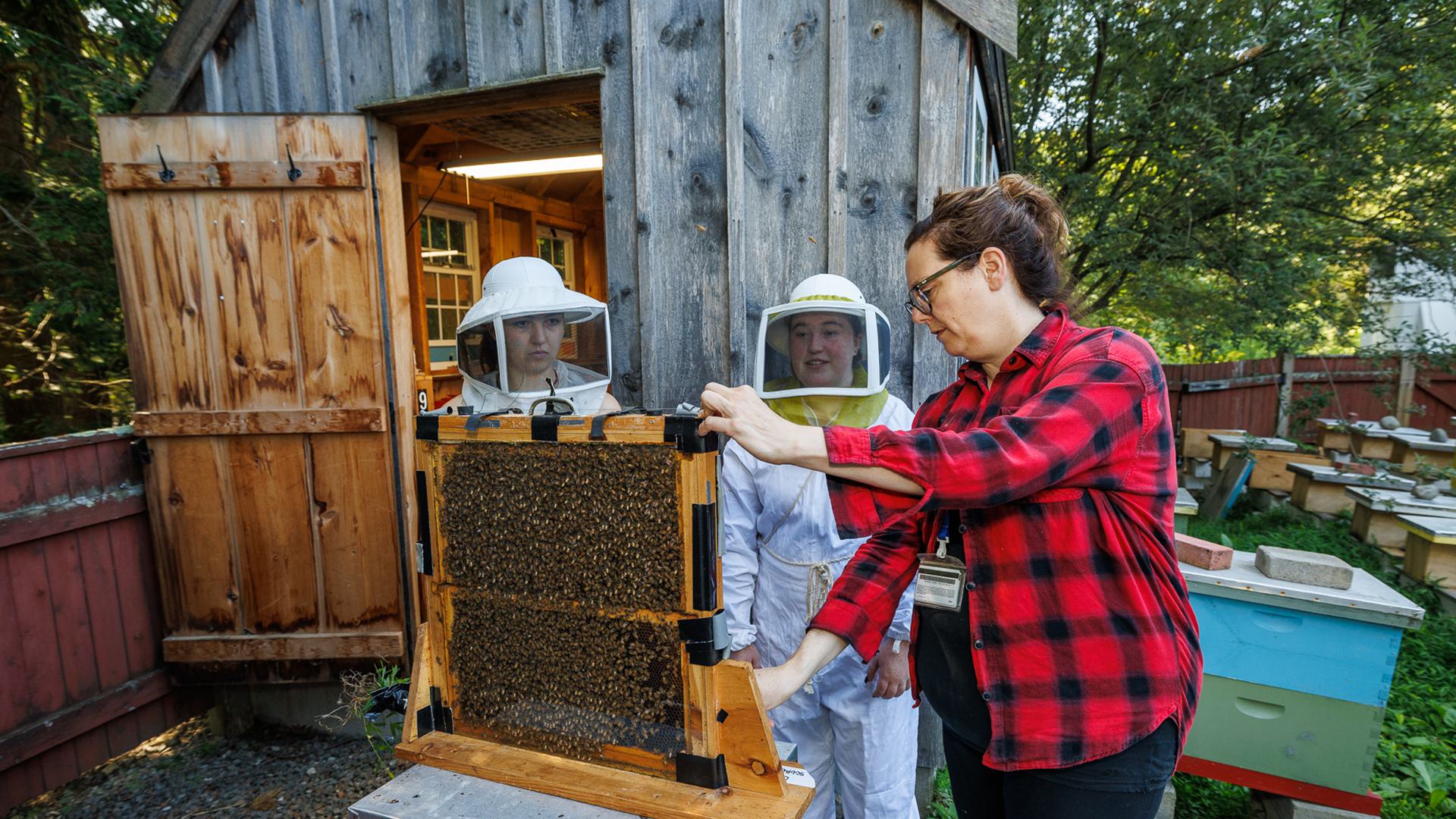Research opportunities you won’t have anywhere else
If you were to ask Wellesley alums what single factor influenced their career choice the most, you’d hear a common refrain: the research they conducted with a Wellesley professor. Our faculty are elite scholars at the forefront of their fields conducting groundbreaking research, making cutting-edge discoveries, publishing important papers and books, and exhibiting and presenting at conferences.
The opportunities available to you at Wellesley are more like those at a major research institution than a typical liberal arts college, and as a result, we have one of the highest undergraduate research publication rates among our peers. At Wellesley you learn more, do more, and achieve more than you ever thought possible—often in fields you may never have discovered otherwise.
Opportunities for first-years and sophomores
You can apply to these programs even if you have little or no research experience!
-

First-Year Student Research Apprentice Program. Offered during the spring semester, this program invites students to become apprentices in faculty labs, where they build their research skills and confidence. Apprentices also receive extra help from faculty when they are ready to apply for the Wellesley Summer Research Program.
-

Sophomore Early Research Program. Students with limited research experience in the natural and social sciences can undertake collaborative research projects with faculty mentors during the academic year. These are work-study positions open to students who are first-generation or low income/high need.
-

Wintersession Research Week. Students spend part of January’s Wintersession immersed in science research on campus. Mentored by graduate students from local medical schools, participants conduct hands-on experiments, gain confidence in basic laboratory skills, and enjoy scientific exploration.
Opportunities for all students
-

Independent research for credit. The best way to delve deeply into a specific subject, students can earn academic credit for original research conducted with a faculty advisor. Students participate in the process of discovery and problem-solving, learn new techniques, think creatively, and present their work through presentations or posters.
-
Wellesley Summer Research Program. Students work with faculty full-time for nine weeks over the summer on research projects in the natural and social sciences. Participants live on campus and receive a stipend, and at the end of the program they present a poster of their research.
-

Knapp Fellows Program in the Social Sciences. Knapp Fellows, who receive a stipend, are matched with a faculty member for collaborative one-on-one work during the academic year, introducing them to the challenges and excitements of scholarly life.
-

Student travel funding for conference presentations. Having your research published is a big deal. To celebrate students who are first or second authors and are presenting their work at professional conferences (authors on papers are listed in order of their contributions, so to be named first or second is a significant achievement!), we offer funds to cover their travel expenses.
-

Research at MIT. Students cross-registered for classes at MIT can apply to MIT’s Undergraduate Research Opportunities Program to work with MIT faculty and researchers on real-world research.
Internships and scholarships
-

Mellon Mays Undergraduate Fellowship (MMUF) Program. Founded to increase diverse perspectives among faculty in higher education, MMUF supports talented students through mentorship, funding for research in the humanities and social sciences, travel to conferences, professional development workshops, and networking events. Fellows develop their academic interests with the goal of completing their doctoral training and thriving in faculty careers in higher education.
-

Ronald E. McNair Post-Baccalaureate Scholarship Program. Low-income, potential first-generation students from disadvantaged backgrounds with demonstrated strong academic potential receive support, through involvement in research and other scholarly activities, as they prepare for doctoral study in STEM disciplines. Eligible students can apply for the McNair program during their sophomore and junior years. Among its benefits, the federally funded program sponsors scholars’ summer research as well as travel to conferences to present work.
-

Beckman Scholars Program. Sophomores and juniors who excel in their science courses and show exceptional promise for independent research can apply to the Beckman Scholars Program. Scholars receive stipends for the Wellesley Summer Research Program (for two summers) and for research during the academic year; additional funding pays for supplies and travel to present research at conferences. Scholars complete the honors thesis program and present their findings in presentations on and off campus.

Spotlight on summer research
The Science Center Summer Research Program lets Wellesley student researchers work on projects alongside faculty.

